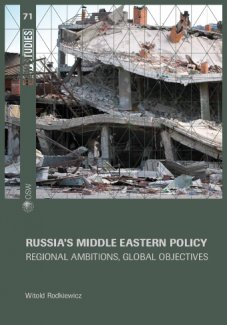Russia’s Middle Eastern policy

Russia’s policy in the Middle East is part of a broader strategy aimed at creating an international order in which Russia would be protected against Western interference in its internal affairs and stand on an equal footing with the United States. From the Kremlin’s point of view, the main aim of the Russian involvement in Syria has been to bring a halt to the Western – and more specifically the American – policy of so-called ‘humanitarian interventions’. The intervention was intended to demonstrate to Washington the limits of its ability to influence the situation in the Middle East and show that the US would have to take the opinions and interests of Russia into account. The success in salvaging Bashar al-Assad’s regime has clearly buoyed Moscow’s ambitions in the Middle East and encouraged it to try to build a new regional order in which Russia would play a key role. That order would consist of a concert of powers that would include, apart from Russia, also Turkey and Iran, as well as the United States; provided the latter shows a willingness to give up its ‘hegemonic habits’. The rebuilding of Russia’s position as a global power in the Middle East has also been an important measure in legitimising Putin’s regime in the eyes of the broadly understood Russian elite and the general public in Russia.




